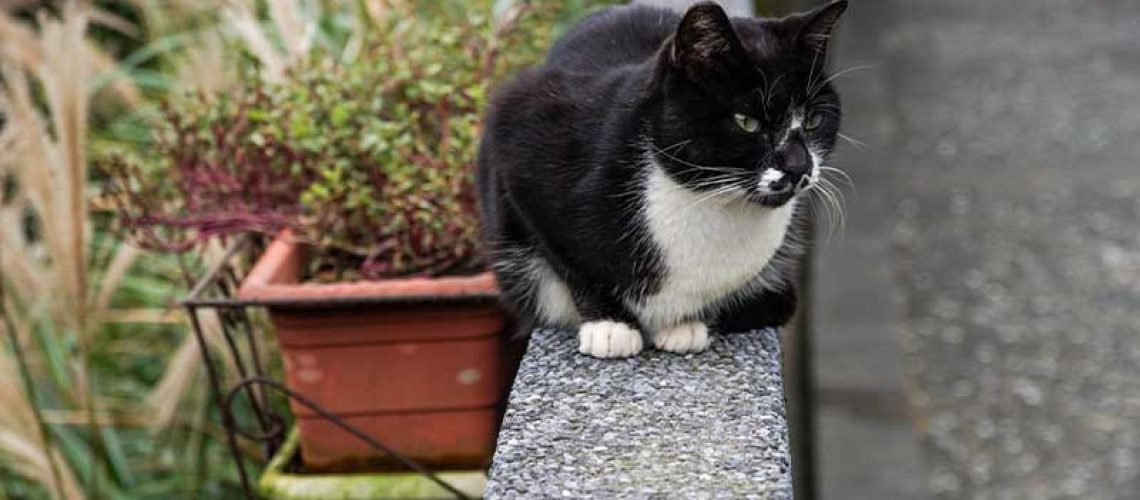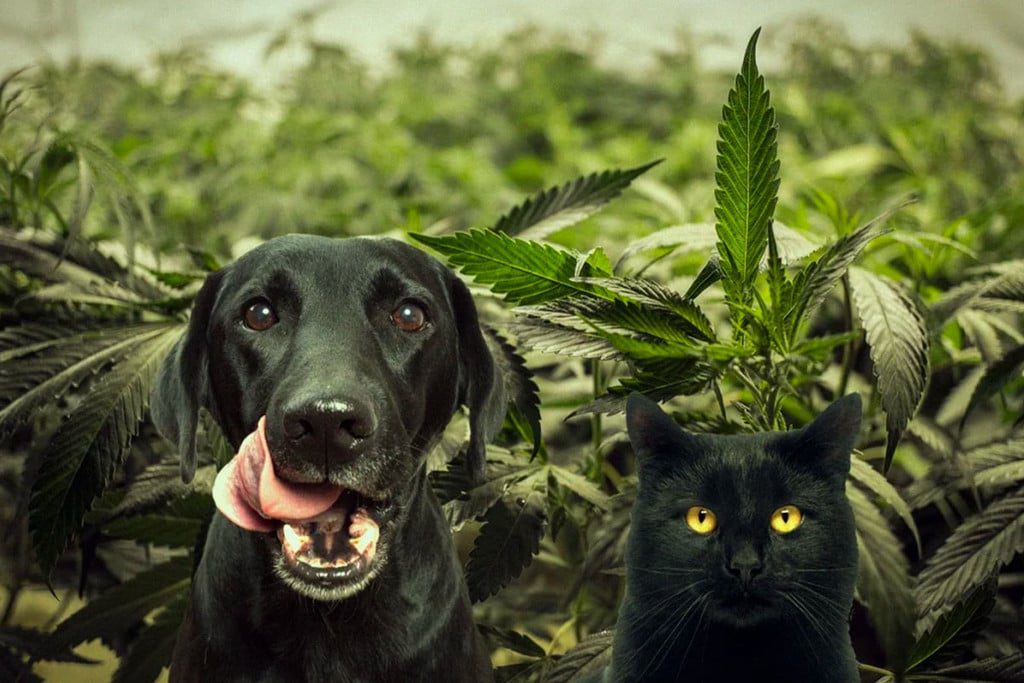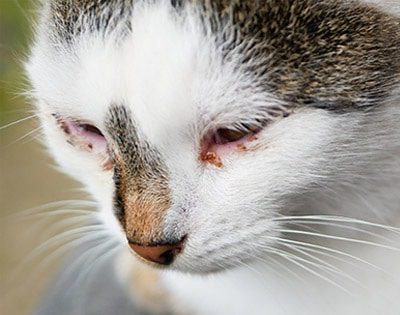Attention all cat owners! Are you aware of the potential dangers lurking in your home? It's time to delve into a subject that could greatly impact the health and well-being of your feline friend. Today, we're going to discuss the safety of eucalyptus for cats. Understanding this topic is essential because it could save your furry companion from harm. Eucalyptus, a popular herb known for its soothing properties, may not be as harmless as it seems when it comes to our beloved pets. In this article, we will explore the potential risks associated with eucalyptus and why it's crucial to exercise caution. So grab a cup of tea and join us as we uncover the truth about eucalyptus and its effects on our feline companions. Your cat's health depends on it!
Key Takeaways:
- Eucalyptus can be toxic to cats and should be avoided.
- Exposure to eucalyptus oil or leaves can cause drooling, vomiting, and difficulty breathing in cats.
- Cats have a heightened sensitivity to essential oils, including eucalyptus, due to their unique liver metabolism.
- It is important to keep all eucalyptus products, such as candles or diffusers, out of reach of cats.
- If you suspect your cat has ingested or come into contact with eucalyptus, seek immediate veterinary care.
Herb Alert: Is Eucalyptus Safe for Cats?
The Importance of Knowing if Eucalyptus is Safe for Your Cat
If you have a cat at home, it's important to know which herbs and plants are safe for them. One such herb is eucalyptus. Eucalyptus is commonly used in various products like oils, candles, and cleaning solutions because of its pleasant scent and potential health benefits. However, when it comes to cats, eucalyptus can be potentially harmful.
Why is it important to know if eucalyptus is safe for your cat?
Cats are curious creatures and may come into contact with eucalyptus in different ways. They may chew on leaves or flowers, rub against eucalyptus-infused surfaces, or inhale the scent. Understanding the risks associated with eucalyptus can help you protect your furry friend from any potential harm.
Can Eucalyptus Harm Your Cat? Understanding the Risks
Eucalyptus contains essential oils that can be toxic to cats. These oils contain compounds called phenols, which can cause gastrointestinal upset when ingested by cats. Ingesting eucalyptus leaves or other parts of the plant can lead to symptoms such as vomiting, diarrhea, drooling, and even difficulty breathing.
What are the risks of eucalyptus for cats?
- Ingesting eucalyptus can irritate your cat's digestive system and cause stomach upset.
- The essential oils in eucalyptus can also irritate your cat's respiratory system if they inhale the scent or come into contact with eucalyptus-infused surfaces.
- Cats may have different sensitivities, so even small amounts of eucalyptus can cause adverse reactions in some cats.
Signs that Your Cat may be Affected by Eucalyptus
If your cat has come into contact with eucalyptus or its essential oils, it's important to watch for any signs of discomfort or illness. Some common signs that your cat may be affected by eucalyptus include:
Signs that your cat may be affected by eucalyptus:
- Vomiting or diarrhea
- Drooling excessively
- Coughing or wheezing
- Difficulty breathing
- Lethargy or weakness
If you notice any of these symptoms in your cat after exposure to eucalyptus, it's important to seek veterinary care immediately.
The Importance of Knowing if Eucalyptus is Safe for Your Cat
As a cat owner, it is crucial to be aware of the potential dangers that certain plants and herbs can pose to your furry friend. Eucalyptus, a popular plant known for its pleasant scent and various uses, may not be safe for cats. Understanding whether eucalyptus is safe or harmful to your cat can help you make informed decisions about keeping your pet healthy and happy.
Why is it important?
Knowing if eucalyptus is safe for your cat is essential because exposure to this plant can lead to various health issues in felines. Cats have a unique metabolism, and certain substances that are harmless to humans can be toxic to them. Eucalyptus contains essential oils that may cause adverse reactions in cats when ingested or even when they come into contact with their skin.
How can it affect your cat?
Eucalyptus can harm your cat in several ways. The essential oils found in eucalyptus leaves and branches contain compounds like cineole and phenol, which are toxic to cats. When ingested, these substances can irritate the gastrointestinal tract, leading to vomiting, diarrhea, or even more severe symptoms like difficulty breathing or seizures. Additionally, direct contact with eucalyptus oil on the skin may cause irritation or allergic reactions in some cats.
Can Eucalyptus Harm Your Cat? Understanding the Risks
Eucalyptus has many beneficial properties for humans but can pose risks to our feline companions. It's crucial to understand these risks before exposing your cat to eucalyptus products or environments.
Potential risks of eucalyptus
Eucalyptus contains essential oils that can be toxic to cats. These oils may cause gastrointestinal upset, respiratory issues, or even neurological problems if ingested in large quantities. Additionally, the strong scent of eucalyptus can overwhelm a cat's sensitive sense of smell and cause discomfort or stress.
Factors that determine the risk level
The severity of the risks associated with eucalyptus depends on various factors. The concentration and amount of exposure play a significant role. Cats with pre-existing health conditions or compromised immune systems may be more susceptible to the adverse effects of eucalyptus. It is also important to consider the individual sensitivity of your cat, as some felines may have stronger reactions than others.
Safe alternatives for cat-friendly environments
- Catnip: This herb is safe for cats and can provide them with stimulation and relaxation.
- Valerian root: Another herb that cats enjoy, valerian root has calming properties.
- Chamomile: This gentle herb can help soothe an upset stomach or promote relaxation in cats.
Signs that Your Cat may be Affected by Eucalyptus
It's important to be aware of the signs that indicate your cat may be experiencing negative effects from eucalyptus exposure. Recognizing these signs early on can help you take appropriate action to protect your pet's health.
Potential symptoms to watch for:
- Vomiting or diarrhea
- Lethargy or weakness
- Coughing or wheezing
- Difficulty breathing
- Excessive drooling
- Agitation or restlessness
What to do if you notice these signs:
If you observe any of these symptoms in your cat and suspect eucalyptus exposure, it is crucial to seek veterinary attention immediately. Your veterinarian can assess the situation and provide appropriate treatment to alleviate your cat's discomfort and prevent further complications.
The Benefits and Drawbacks of Using Eucalyptus Around Cats
Eucalyptus has its advantages and disadvantages when it comes to using it around cats. Understanding both sides can help you make an informed decision about whether or not to incorporate eucalyptus into your cat's environment.
The benefits of using eucalyptus:
- Natural pest repellent: Eucalyptus has properties that repel insects, making it a natural alternative to chemical-based pest control methods.
- Aromatherapy: The scent of eucalyptus can have a calming effect on humans, which may indirectly benefit cats by creating a relaxed atmosphere in the home.
The drawbacks of using eucalyptus:
- Toxicity risks: As mentioned earlier, eucalyptus can be toxic to cats if ingested or if they come into contact with concentrated essential oils. This risk should be carefully considered before introducing eucalyptus products or plants into your cat's surroundings.
- Sensitivity concerns: Some cats may be more sensitive to strong scents like eucalyptus, which could cause stress or discomfort for them.
Precautions to Take When Using Eucalyptus Near Your Cat
If you decide to use eucalyptus in your home, it is crucial to take certain precautions to ensure the safety of your cat. By following these guidelines, you can minimize the risks associated with eucalyptus exposure.
Keep eucalyptus products out of reach:
To prevent accidental ingestion or contact, store eucalyptus oils, sprays, or plants in areas that are inaccessible to your cat. Consider using high shelves or closed cabinets to keep them safely away from curious paws.
Avoid direct contact with essential oils:
If you use eucalyptus oil for aromatherapy purposes, make sure it is properly diluted and never apply it directly to your cat's fur or skin. Keep diffusers or other sources of essential oil vapors in well-ventilated areas where your cat can choose whether or not to be exposed.
Creating a cat-friendly environment:
- Provide alternative safe herbs: Offer cat-friendly herbs like catnip or valerian root as an alternative for your feline friend's sensory stimulation needs.
- Create cozy spaces: Ensure your cat has comfortable hiding spots and cozy beds where they can retreat if they feel overwhelmed by scents or stimuli.
- Maintain good ventilation: Adequate airflow can help disperse any strong scents and reduce the concentration of potentially irritating substances in the air.
Safer Alternatives to Eucalyptus for Cats: Other Herbs and Plants to Consider
If you want to provide a pleasant environment for your cat without the risks associated with eucalyptus, there are several cat-friendly herbs and plants you can consider. These alternatives offer similar benefits without the potential harm.
Cat-friendly herbs:
- Valerian root: This herb has a calming effect on cats and can help reduce anxiety or stress.
- Chamomile: Known for its soothing properties, chamomile can be used to promote relaxation in cats.
- Lemongrass: The scent of lemongrass is pleasant to cats and can act as a natural insect repellent.
Cat-safe plants:
- Spider plant (Chlorophytum comosum): Spider plants are non-toxic to cats and can provide visual stimulation with their long, dangling leaves.
- African violet (Saintpaulia): These colorful flowering plants are safe for cats and add beauty to any indoor space.
- Areca palm (Dypsis lutescens): This palm species is non-toxic to cats and adds a touch of tropical greenery to your home.
Where to Find Reliable Information about Herb Safety for Pets
When it comes to ensuring the safety of your pets around herbs or plants, it's essential to rely on accurate and trustworthy sources of information. Here are some reliable resources where you can find valuable insights regarding herb safety for pets:
Veterinary professionals:
Your veterinarian is an excellent source of information when it comes to understanding which herbs or plants are safe for your cat. They have the expertise and knowledge necessary to guide you in making informed decisions about your pet's well-being.
Animal poison control centers:
In case of emergencies or if you suspect your cat has ingested something harmful, contacting an animal poison control center can provide you with immediate guidance and assistance. These centers have specialists available 24/7 to help address any concerns regarding potential toxic exposures.
Reputable pet care websites:
Websites such as the American Society for the Prevention of Cruelty to Animals (ASPCA) or the Pet Poison Helpline offer comprehensive information on plant toxicity and safety for pets. These resources often include databases that allow you to search for specific plants and herbs to determine their potential risks.
By consulting these reliable sources, you can stay well-informed about herb safety for pets and ensure a safe environment for your beloved feline companion.
In conclusion, it is best to avoid exposing your feline friend to eucalyptus as it may cause harm. While it has potential health benefits for humans, it can be toxic to cats and should be kept out of their reach.
Is the scent of eucalyptus harmful to cats?
Are essential oils safe for our pets? Certain essential oils, including eucalyptus oil, tea tree oil, cinnamon, citrus, peppermint, pine, wintergreen, and ylang ylang, are toxic to pets and can cause harm whether they are applied topically, used in diffusers, or ingested in the event of a spill.
Is eucalyptus fabric safe for cats?
To create our cooling sheets and pillows, we utilize the wood pulp derived from the Eucalyptus plant. The wood pulp from Eucalyptus and its manufacturing process are non-toxic for dogs, cats, and other animals.
Do cats not like eucalyptus oil?
Can Eucalyptus effectively keep cats away? It turns out that Eucalyptus oil can deter cats. The pleasant fragrance of this oil is the exact reason why cats dislike it. Cats have a strong sense of smell.
Which essential oils are cat safe?
What are the safe essential oils for cats? The recommended essential oils that are safe for cats include rosemary, copaiba, helichrysum, oregano, frankincense, and cedarwood. Cats can also tolerate chamomile, lavender, thyme, and valerian essential oils at very diluted concentrations.
Can you burn eucalyptus candles around cats?
Some oils that can be dangerous for cats include wintergreen, sweet birch, citronella oils and candles, citrus (d-limonene), pine, ylang-ylang, peppermint, cinnamon, pennyroyal, clove, eucalyptus, tea tree (melaleuca), thyme, oregano, and lavender.
Can pets smell eucalyptus?
However, despite the fact that dogs are capable of detecting the scent of eucalyptus, whether it is from the actual tree or from an essential oil diffuser, it does not mean that they should be exposed to it. Eucalyptus is actually poisonous to both dogs and humans when consumed, and it can also cause skin irritation when applied topically.

















